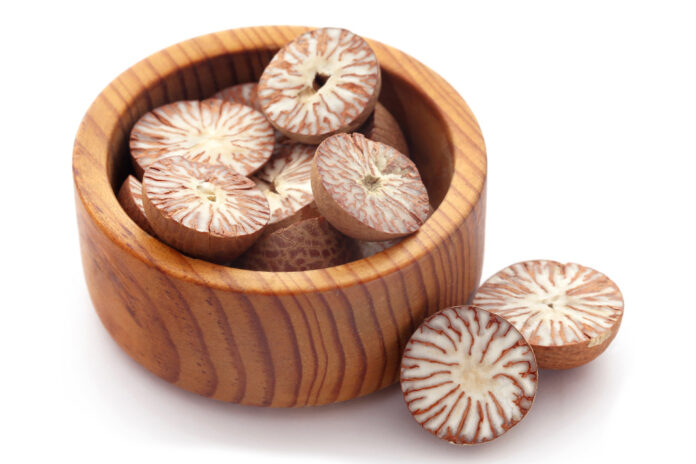
Many Herbal Formulas Use Banned or Restricted Herbs
By Namwook Cho L.Ac.
Ma Huang and Ma Huang Gen are not the only banned herbs. There are a lot of FDA controls more herbs than you think. Many herbs have been frequently used in an herbal formula and did not realize that the formula contains banned herbs.
Herbs are classified and restricted or banned due to various reasons: poisonous, unfit for human consumption, contains aristolochic acid, or contains ephedrine alkaloids. Some herbs are regulated and cannot be imported or exported by CITES, Convention on International Trade in Endangered Species of Wild Fauna and Flora.
Certain herbs require a permit to be imported. Therefore, if you want to buy the herb or the product that contains the controlled herb, you should make sure to buy the herb or the product from a company imported to meet the requirements.
Herbs Need Attention for Using In a Herbal Formula
There are many controlled or banned herbs that acupuncturists have frequently used.
Mahuang-tang(麻黃湯), Gegen-tang(葛根湯), Xiaoqinglong-tang(小靑龍湯) are frequently used in any acupuncturists to reduce the symptoms from the common cold, muscular pain on the trapezoid muscle in general. But commonly contains Mahunag. The formulas are famous to an acupuncturist, and most acupuncturists are cautious as they need to use the formula.
But what if we do not know which herbs are banned or restricted for use in the US.
Some herbs are controlled by various government agencies such as the FDA, Food & Drug Administration on a different level of restriction.
Due to its toxicity, the most important herbs to be handled with care are Ban Mao, Bing Lang, Chan Su, Da Fu Pi, Ji Nei Jin, Ma Qian Zi, and Ying Su Ke.
Bing Lang and Da Fu Pi are used in the herbal formula, Fenxinqi-yin(分心氣飮), which treats Qi stagnation. Ji Nei Jin is frequently used to help digestion.
Bing Lang and Da Fu pi are classified because they contain carcinogenic and addictive substances. Ji Nei Jin does not contain toxic substances, but it is considered a potential source of an avian flu virus.
There are herbs regarded as improper to use, such as Can Sha, Wu Ling Zhi, Ye Ming Sha, and Zi He Che. Can Sha, Wu Ling Zhi, Ye Ming Sha be feces of either animals or insects. Zi He Che is a human product. Wuling-san(五苓散) use Wu Ling Zhi as a key herb to make the formula. Therefore, if you want to use the formula, you should consider that herbs are not allowed to use it.
Aristolochic acid is a substance that causes aristolochic acid nephropathy, ANN. Herbs that contain aristolochic acid are prohibited for using as herbal medicine in the US. Guang Fang Ji(廣防己, Southern Fangchi), Guan Mu Tong(關木通, Aristolochiae Manshuriensis Caulis), Ma Dou Ling(馬兜鈴, Aristolochia contorta), Qing Mu Xiang(靑木香, Aristolochia debilis Siebold et Zuccarini), and Xi Xin(細⾟, Asarum sieboldii Miq.) are herbs containing aristolochic acid and considered to be dangerous and increasing ANN.
Xi Xin(細辛, Asiasari Radix et Rhizoma)is often used to treat common cold symptoms in the formulas of Jiuweiqianghuo-tang(九味羌活湯), Xiaoqinglong-tang(小靑龍湯), and Duhuojisheng-tang(獨活奇生湯). All three formulas have a variety of indications for not just for treating cold symptoms. It could be applied to taking care of muscular pains and pains and joint deformations due to arthritis.
Appendix I of CITES controls herbs to protect the species for which no commercial trade is allowed to protect them from extinction. And Appendix II is for the threatened species but for which limited trade is allowed. An export permit is issued under the condition that the specimen was legally obtained and imported legally.
The list of herbs and substances in Appendix I are: Bao Gu(Panther or Leopard’s bone and any other parts of them), Dai Mao(Hawksbill turtle shell), Hou Zao(Rhesus monkey bile stone), Hu Gu(Tiger bone and any other parts), Mu Xiang(木香, saussurea costus), She Xiang(麝香, Moschus), Shi Hu(wild species only, artificially propagated hybrids are exempted), Ta Gan(Otter’s liver), Xi Niu Jiao(Rhino horn), and Xiong Dan(Vesica Fellea Ursi). Especially, Mu Xiang(木香, Aucklandiae Radix) has been commonly used in formulas, for example, Xiangshapingwei-san(香砂平胃散), Guipi-tang(歸脾湯), and Xiangshaliujunzi-tang(香砂六君子湯).
List of herbs in the article referred to “Sustainability Issues of Traditional Chinese Herbal Medicine” by Skye Sturgeon, MSOM, DAOM.





































